Events
| Name | organizer | Where |
|---|---|---|
| MBCC “Doing Business with Mongolia seminar and Christmas Receptiom” Dec 10. 2025 London UK | MBCCI | London UK Goodman LLC |
NEWS
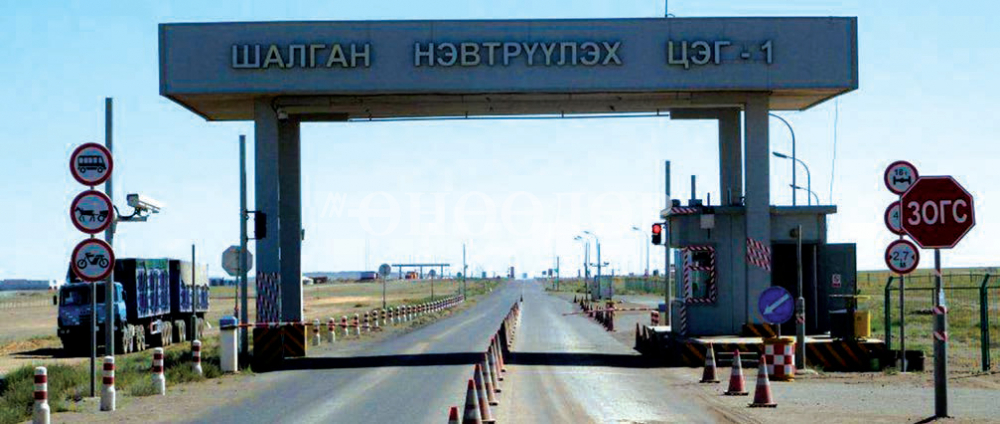
Mongolia's foreign trade up 24.4 pct in first 10 months www.xinhuanet.com
Mongolia's foreign trade went up 24.4 percent year on year to 10.8 billion U.S. dollars in the first 10 months of this year, data from the National Statistics Office (NSO) showed on Thursday.
Mongolia's exports increased 14.6 percent to 5.9 billion U.S. dollars while imports surged 39 percent to 4.9 billion dollars in the January-October period, according to the data.
The rise in total exports was largely attributed to increases of 1 billion dollars and 75 million dollars in exports of mineral products and textile goods, respectively.
The growth in total imports was mainly due to the significant increases in imports of diesel, machinery and electric appliances, the NSO said.
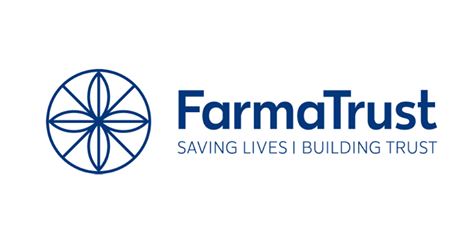
Farmatrust And Government Of Mongolia Round Up Feasibility Study To Eliminate Fake Drugs In The Country www.techbullion.com
FarmaTrust has revealed that it is partnering with the Government of Mongolia to fight fake drugs and this makes t the very first tracking solution that is based on a blockchain in the industry of pharmacy.
FarmaTrust happens to be a leading pharmaceutical supply chain company, and the reason for launching this maiden track & trace blockchain project is to get rid of counterfeit drugs in Mongolia. FarmaTrust collaborated with governmental parties and some NGOs such as the Specialized Inspection Agency of Mongolia, as well as, the e-Government Center NGO. With the memorandum of understanding signed in February 2018, the chairman of FarmaTrust was present as all parties appended their signatures to the feasibility study in London, precisely at the House of Lords.
How it works
Blockchain technology will be utilized by FarmaTrust in tracing the global supply chain of individual drug packets and also pharmaceuticals. It has a mission of getting rid of counterfeit medications in order to ensure that lives are saved while also making the pharmaceutical industry more efficient. With the use of blockchain, FarmaTrust develops a ledger that immutable and has the ability to track and ensure the security of pharma supply chains which make use of Artificial Intelligence and also the analysis of big data.
This partnership with the Government of Mongolia is FarmaTrust’s way of showing that its system works and is very effective in growing markets and also developed markets. FarmaTrust will commence through the administration of feasibility reports, national government monitoring, and the inspection of pharma supply chains, pharma warehouses, as well as, relevant retailers.
The Benefits
This partnership agreement by the government will provide performance longevity and will also offer the chance for this agreement to be used a study for related governmental entities all over the world, especially, in countries where there is an unclear environment for regulation, as well as, a lack of technological infrastructure. This project will encompass every medication in all parts of the territory instead of just targeting particular product lines in certain private companies. This is the first time that a tracking solution has been implemented that is based on blockchain in this specific territory and in the pharma sector.
When It Commences
It is anticipated that the installation procedure will take place in the second quarter of 2019 once the legal and budgetary requirements are fulfilled. FarmaTrust relishes the opportunity to be partners with the Government of Mongolia, especially, since it validates the blockchain tracking solution, not just its vision and its concepts. This project will be implemented live, and as a lifesaving project, it will show that FarmaTrust can function as a blockchain company and as a consultancy agency in the country
The stride made by FarmaTrust in order to commercialize its technology and also partner with some key players in recent times is really profound. It is expected that in 2019, FarmaTrust will accelerate its customer base as they have now become a leader in the blockchain pharmaceutical sector.
...
Goldlinks Teams Up with Mongolian Gold Mine www.markets.businessinsider.com
SINGAPORE, Nov. 15, 2018 /PRNewswire/ -- On November 15, 2018, the global gold industry blockchain alliance, Goldlinks, announced the conclusion of a strategic partnership with Erd Khul LLC, a gold mine in Mongolia. The partnership covers cooperation on mining, the creation of gold-backed digital assets, mine acquisitions, and more. The tie-up is the latest in a succession of important partnerships for Goldlinks, and indicates Erd Khul's enthusiasm for the synergies made possible by gold-backed digital currencies.
Erd Khul LLC is located in Zaamar District, Töv Province, Mongolia. The mine occupies a total area of 2,243.08 ha, has proven gold reserves of 50 tonnes, and a monthly output of 150 kg, expandable to over 500 kg. Recent data shows that Mongolia has proven gold reserves of approximately 3,100 tonnes. These are widely dispersed, with over 70 known deposits. Moreover, with the opening of several mines of varying sizes in recent years, Mongolia's gold production has been on an upward trajectory.
Joint issuance of GGC tokens
Recently, Goldlinks unveiled a gold-backed digital currency called Global Gold Cash (GGC) that runs on a blockchain and is backed by physical gold. Currently, 100 GGC is equal to one gram of physical gold of 99.9% purity. As an up-and-coming 'stablecoin' that is backed by gold, GGC recently found itself in the media spotlight after it became the world's first digital currency to be used in international trade settlement.
Under this new strategic partnership, Erd Khul expressed its approval of Goldlinks' philosophy and vision and pledged to work together to digitize its 50 tonnes in gold reserves. This physical gold will be used by Goldlinks to back the issuance of GGC, helping to lend the tokens greater credibility.
In addition, Erd Khul agreed to accept payment in GCC from Goldlinks users for products and services provided by the mine and its subsidiaries. This offers a compelling usage case for the currency as a medium of exchange in commercial applications.
The agreement also calls for the establishment of a joint digital currency investment fund that will invest in high-quality digital currency projects worldwide to promote the digitization of gold by mine owners. Backed by physical reserves, future production, and mining rights, gold-backed blockchain tokens are expected to have a profound impact on the world's financial, blockchain, and digital currency sectors.
GGT poised to become first token used to acquire shares in mines
Also of note is that Erd Khul may allow users to trade Global Gold Token (GGT), a gold community digital currency issued by Goldlinks, in exchange for shares in its gold mine. This could make GGT the world's first digital currency that can be used to acquire a mining stake.
GGT is a utility token issued to community members by Goldlinks that records member rights, including the right to buy gold at a discount, invest in gold mines, vote on projects, and reap the rewards of the Goldlinks business ecosystem. At the time of going to press, one GGT token was trading at around 1.21 USDT on BitForex.
...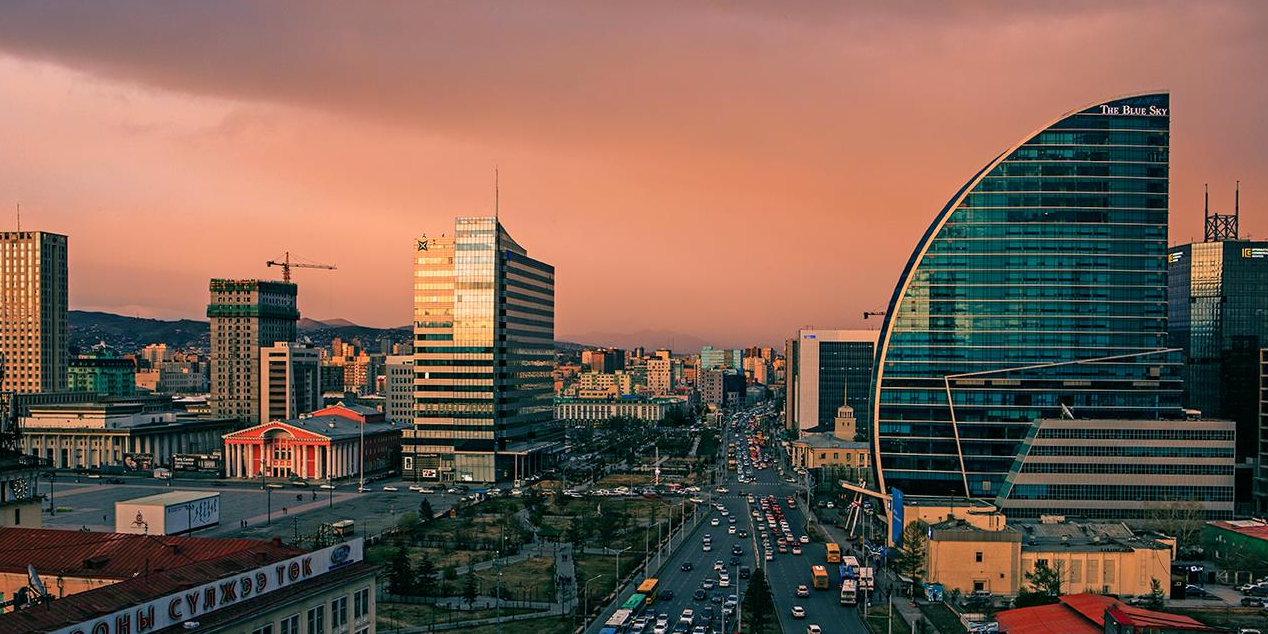
FX rate named as one of Top 3 risks of 2019 www.zgm.mn
With an aim to identify potential risks of public, private and sectoral, as well as their countermeasures, Mongolia's Risk Forum 2018 took place yesterday and touched upon Top 3 risks for businesses in 2019. The forum considered foreign exchange (FX), cyber security and commodity prices as Top 3 risks for next year. Regarding the FX risks, Ganzorig Ulziibayar, CEO of Golomt Bank, addressed, “Weakening MNT rate is related to Mongolia’s fiscal policy, populist promises of political parties and wasted expenditures that follows them. The Government does not implement stability or export-driven policies. The economy still remains vastly dependent on coal and iron ore exports. FX rate will always be a risk without creating an export-driven economy. This has to include intellectual export.” Organizers addressed that the fast advancement of technology is creating a massive risk, which is cyber security. Battsengel Oidov, Cyber Security Expert, remarked, “Global cybersecurity index studies national cyber security of countries. Mongolia was ranked 104th along with Palestine from 164 countries. This proves that Mongolia’s cyber security remains weak.
Mongolia ranked 104th out of 164 countries on Global Cybersecurity Index
Although banks and telecommunication companies pay close attention to cyber security, others are unable to do so. Many organizations do adapt to high-cost technologies and transfer to digitalization; however, they commonly ignore cyber security. Most of them have wrong understanding about the concept. Cyber security is investing in technology and improving the IT knowledge of their employees. It is important to implement this process coordinating these two as a whole.” As for commodity price risk, Mr. Ganzorig highlighted that the slump in China’s economic growth may affect the prices of coal, iron ore and copper. “We often say that our economy is too dependent on China; however, we are still lacking diversification actions. It is necessary that we establish a research institution that studies China’s economy and estimate potential measures for a potential downturn in China’s economy.
NECESSITY FOR DEVELOPMENT OF MANAGEMENT
The forum further suggested development of managers as a potential measure for entities to avert risks. A spokesperson of Golomt Bank addressed, “Organizations mostly focus on executive employees when it comes to human resource development. However, managers are more commonly lacking skills and requires more focus. Specifically, psychology-based development is required in management. Developing managers’ ability to identify workers’ skills and mutual understanding will help reduce human resource risks.”
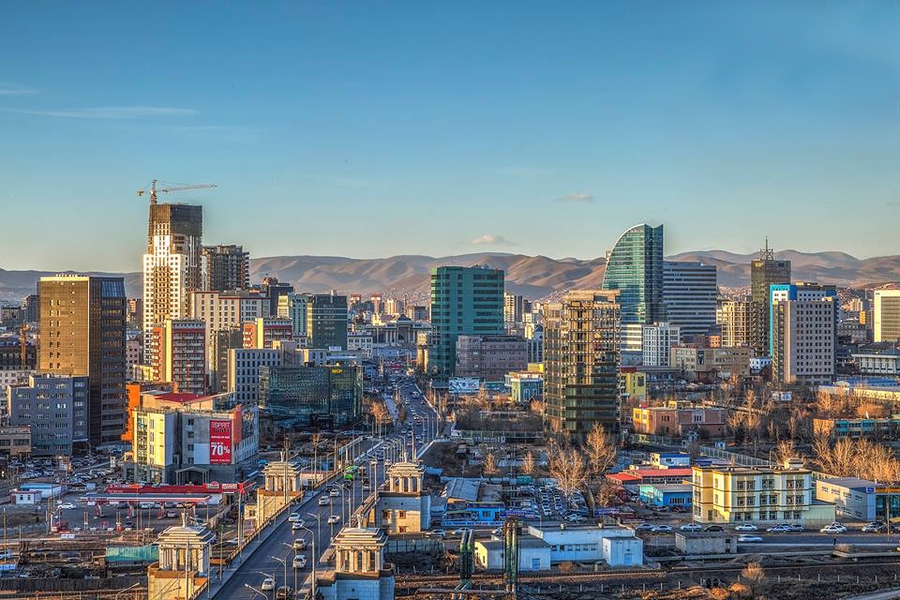
Mongolia: Time to move from promises to actions www.forum-asia.org
Over the last two days, 12-13 November 2018, the Asian Forum for Human Rights and Development (FORUM-ASIA) and its members from Mongolia, the Centre for Human Rights and Development (CHRD) and Globe International (GI), organised a joint consultation on National Human Rights Defenders “Advancing Human Rights and Development” in the country. The consultation brought together various stakeholders in addressing human rights issues, including human rights organisations, human rights defenders from both Ulaanbaatar and rural areas, as well as representative from the Ministry of Foreign Affairs and the National Human Rights Commission. A Malaysian lawyer and freedom of expression expert also joined to share his experience and insights.
During the two-day discussion, participants concluded that human rights defenders in Mongolia are still vulnerable to threats, intimidation, and harassment from both state and non-state actor particularly foreign and domestic companies operating in rural areas. Human rights defenders are an integral part of a democracy in any country and have important role to ensuring that development is sustainable, inclusive and non-discriminatory in Mongolia. Whether they are environmental activists, journalists, herders, students, trade unionists or of any other profession, they should be able to express themselves freely and carry out their peaceful work without fear of reprisal. In this regard, the state plays a crucial role to create an enabling environment by; repealing repressive laws and provisions; enacting pro-human rights laws and policies in line with international human rights standards; and ensuring that such laws and policies are effectively implemented equally without any discrimination.
There are three main areas of concern, which came up during this year’s consultation[1], being: (i) curtailing of freedom of expression, in particular through the proposed amendment on the defamation clause in the Criminal Code and Libel clause of the Law on Administrative offence[2].; (ii) developing effective law on protection of human rights defenders and how to enact the law and (iii) disruptive business activities, in particular mining and large development project, and their adverse human rights impact. While some progress has been made over the past year when it comes to these areas of concern, in other instances there has been actually been regress. While there is a positive progress on drafting the law on human rights defenders protection under the leadership of the Mongolian National Human Rights Commission (MNHRC) in consultation with CSOs, negative impacts of mining and agriculture companies’ operation have been intensified especially for local communities and herders.
Human rights defenders including journalists strongly oppose the inclusion of defamation as a criminal offence and the Libel clause under the Law on Administrative Offences. Such a provision will have a chilling effect on society and will stifle freedom of expression. If the proposed amendment is enforced, this would be a step backward by the Government. The right to freedom of expression is guaranteed for everyone under the Constitution of Mongolia and international human rights standards. Human rights defenders, including journalists, have an important role in holding the Government accountable, and the State must ensure they are able to do so. Participants of the consultation also encourage the Government to review all legislation that can be used to stifle freedom of expression, in particular the proposed amendment on defamation to the Criminal Code, and to ensure the active participation of all stakeholders in the amendment process.
During the discussion on the draft human rights defenders protection law, the network of human rights defenders in Mongolia welcomed efforts made by key human rights actors in the country, such as the Mongolia National Human Rights Commission (MNHRC) and the human rights sub-committee of Parliament. However, participants to the consultation believe that some provisions in the latest draft law can still be strengthened to ensure substantive and holistic protection of human rights defenders in Mongolia, including the clearer definition of human rights defenders, the role they have in the protection committee as well as an inclusion of local authorities’ protection obligation. Such a review is important to ensure the inclusivity of the law, and effective implementation.
Participants also pointed out that business operations, such as mining, take place without effective control mechanisms, while environmental defenders and herders continue to be affected by business operation. In this context, participants noted that since the United Nations Working Group on Business and Human Rights visit in 2012, there has been no meaningful progress from the Government to develop a National Action Plan (NAP) on Business and Human Rights. The NAP should articulate the State’s priorities and actions to protect against the adverse impact of business operations, as well as clarify how businesses should discharge their responsibilities to respect human rights. The Government should ensure that the NAP is based on international human rights standards, in conformity with the United Nations Guiding Principles on Business and Human Rights as well as covering key issues such as mining companies’ practices, land distribution and labor rights. It should take into account the inputs from civil society organisations and affected communities through a genuine open and consultative process.
Some progress on human rights has been made over the past year in Mongolia. However, human rights defenders are still subject to intimidation and harassment. As a champion of democracy in East Asia, the Government of Mongolia needs to play a proactive role in the protection of human rights defenders, by creating an enabling legal environment and ensuring the effective implementation of laws and policies. By doing so, the protection and fulfilment of human rights may fully be achieved in the country.
...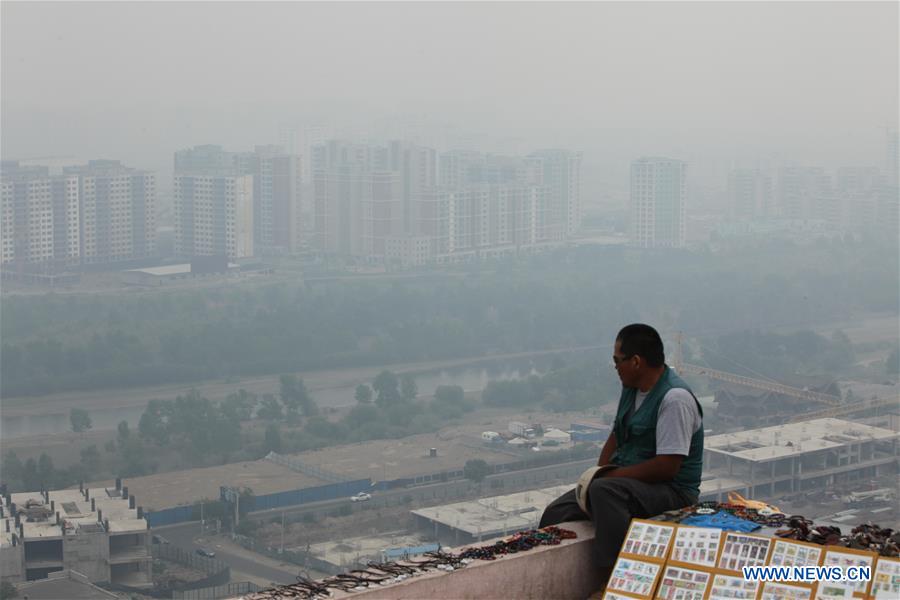
UB air-pollution disaster: Innovation centre for heating opens www.news.mn
The National Security Council of Mongolia has declared that air-pollution in the capital city Ulaanbaatar has reached disaster level and issued guidance.
This year’s cold season has already begun and with it the acrid smog from the ger districts in the Mongolian capital. Both the national government, the city administration and the administrations of UB’s districts have begun implementing actions for fighting air-pollution. For example, an innovation centre for heating technologies has opened in the Chingeltei District advertising and promoting companies which work in fighting air-pollution. The Chingeltei centre also informs the public about Government resolutions and action in combating pollution. The Chingeltei District spent MNT 310 million on the innovation center.
Air pollution in Ulaanbaatar, where a half of the country’s children live, is amongst the highest in the world during the cold season. In the last 10 years, incidences of respiratory diseases in Ulaanbaatar have increased alarmingly, including a 2.7-fold increase in respiratory infections per 10,000 population. Pneumonia is now the second leading cause for under-five child mortality among the under-fives, in the country.
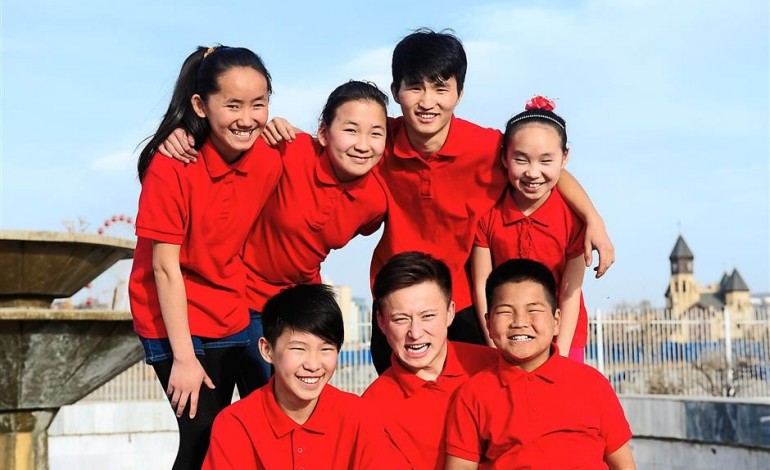
Mongolia drafting law for protecting children from negative news www.news.mn
14 November, the National Human Rights Commission of Mongolia (NHRC) presented its 17th report at a meeting of the Parliamentary Standing Committee on Justice. MP Ts.Nyamdorj noted that the NHRC needs to actively cooperate on repression cases which have been increasing recently. Also, MP N.Uchral said it is necessary to protect human rights and the right to freedom in the field of social media.
The Temporary Committee on E-Policy has been drafting law for protecting children from the impact of negative news, such as distressing stories and images, that can severely impact the mental health and development of the young.

Mongolian SME fund scandal: demonstrators demand MP resignations www.news.mn
A demonstration took place outside the west gate of Mongolia’s State House, demanding the resignation of the MPs who allegedly received loans from the Small & Medium Enterprise Fund. The demonstrators are demanding that legal action be taken against those MPs who enabled friends and relatives to access funds.
In 2009, the Mongolian government expanded a fund to support small and medium enterprises (SME’s). This provided companies with low-interest loans at 3 percent interest for up to five years and contained 2 billion Mongolian Tugrik (roughly USD 780,000 at today’s exchange rate). The fund is reported to have dispersed loans, totalling nearly 700 billion tugrik, or several hundred million U.S. dollars. The fund was created in – and continues to be overseen by – the Ministry of Food, Agriculture, and Light Industry.
Last week, the chief prosecutor requested the State Great Khural (parliament) to revoke the parliamentary immunity of B. Batzorig’s, who runs this ministry – and, thereby the fund itself. However, the Khural, which is dominated by the MPP refused to do so.
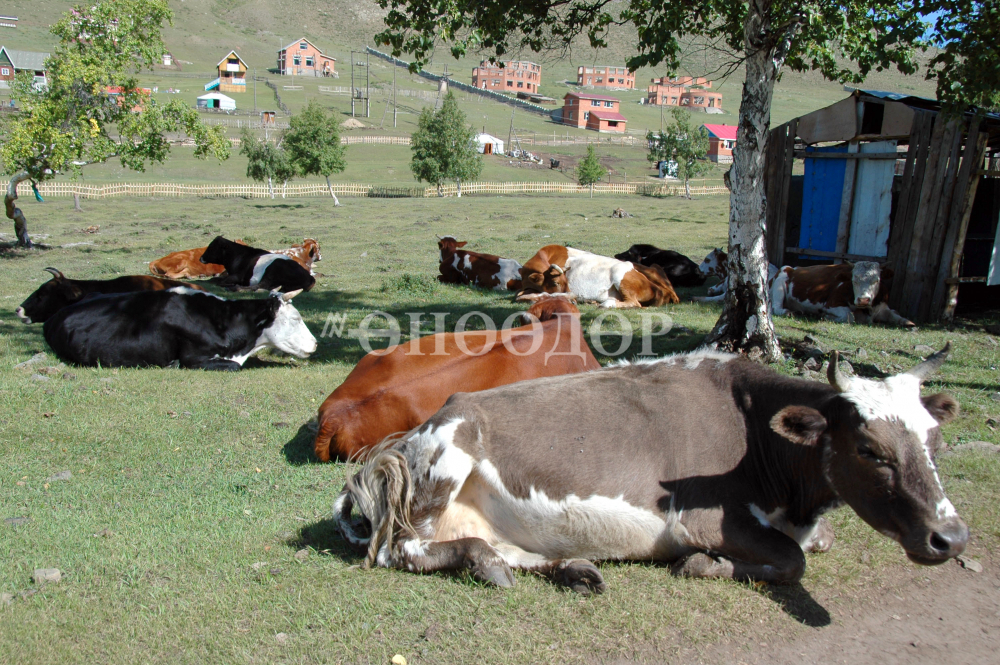
Mongolia to implement program to develop intensive livestock farming www.xinhuanet.com
Mongolia will implement a national program to promote the development of intensive livestock farming in 2019-2023, the country's Ministry of Food, Agriculture and Light Industry said Wednesday.
The national program aims to bolster its mining-dependent economy by boosting the export of livestock products, the ministry said in statement.
Under the program, the country has set a goal to reduce the import of liquid milk to zero and to increase the production of processed meat and dairy products by 30 percent.
The landlocked country's economy is heavily dependent on mining and commodity exports. Currently, mineral products account for over 90 percent of its total exports.
The development of intensive animal farming is seen as a possible solution to diversify the economy.
Mongolia is one of the last nomadic countries in the world. As at 2017, its livestock population stood at 66.2 million.
However, the country also imports no small amount of livestock products, according to the Ministry of Food, Agriculture and Light Industry.
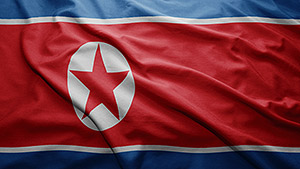
Japanese spies met with North Koreans in Mongolia www.
Senior Japanese intelligence agents met with North Korea officials in Mongolia on Friday, according to a Japanese press report.
Fuji News Network reported Wednesday the meeting took place in the Mongolian capital of Ulaanbaatar. Shigeru Kitamura, the head of Japan's Cabinet Intelligence and Research Office under Prime Minister Shinzo Abe, headed the Japanese delegation.
According to the network, bilateral meetings with Pyongyang have been taking place secretly, and Kim Song Hye, head of North Korea's United Front Department in the Korean Workers' Party, likely represented the Kim Jong Un regime at the talks.
Kim Song Hye was noticeably absent from a group of North Korean delegates who are in the South this week to attend an international convention.
Japanese government sources who spoke to FNN said the meetings are being held to possibly negotiate the issue of abducted Japanese citizens.
Kitamura is in Washington this week to meet with U.S. officials following the talks, according to the report.
Yomiuri Shimbun reported Japan called for a summit between Abe and Kim Jong Un during the talks.
Japan's Chief Cabinet Secretary Yoshihide Suga said Wednesday at a regular press briefing the government chooses to "refrain" from discussing the reports of the Mongolia meetings.
In October, Kitamura reportedly met with North Koreans in Ulaanbaatar, where he obtained new information about Minoru Tanaka, a Japanese citizen possibly abducted to North Korea in 1978.
Suga said Tokyo is addressing the issue of a summit with the North through "various channels."
- «
- 1
- 2
- 3
- 4
- 5
- 6
- 7
- 8
- 9
- 10
- 11
- 12
- 13
- 14
- 15
- 16
- 17
- 18
- 19
- 20
- 21
- 22
- 23
- 24
- 25
- 26
- 27
- 28
- 29
- 30
- 31
- 32
- 33
- 34
- 35
- 36
- 37
- 38
- 39
- 40
- 41
- 42
- 43
- 44
- 45
- 46
- 47
- 48
- 49
- 50
- 51
- 52
- 53
- 54
- 55
- 56
- 57
- 58
- 59
- 60
- 61
- 62
- 63
- 64
- 65
- 66
- 67
- 68
- 69
- 70
- 71
- 72
- 73
- 74
- 75
- 76
- 77
- 78
- 79
- 80
- 81
- 82
- 83
- 84
- 85
- 86
- 87
- 88
- 89
- 90
- 91
- 92
- 93
- 94
- 95
- 96
- 97
- 98
- 99
- 100
- 101
- 102
- 103
- 104
- 105
- 106
- 107
- 108
- 109
- 110
- 111
- 112
- 113
- 114
- 115
- 116
- 117
- 118
- 119
- 120
- 121
- 122
- 123
- 124
- 125
- 126
- 127
- 128
- 129
- 130
- 131
- 132
- 133
- 134
- 135
- 136
- 137
- 138
- 139
- 140
- 141
- 142
- 143
- 144
- 145
- 146
- 147
- 148
- 149
- 150
- 151
- 152
- 153
- 154
- 155
- 156
- 157
- 158
- 159
- 160
- 161
- 162
- 163
- 164
- 165
- 166
- 167
- 168
- 169
- 170
- 171
- 172
- 173
- 174
- 175
- 176
- 177
- 178
- 179
- 180
- 181
- 182
- 183
- 184
- 185
- 186
- 187
- 188
- 189
- 190
- 191
- 192
- 193
- 194
- 195
- 196
- 197
- 198
- 199
- 200
- 201
- 202
- 203
- 204
- 205
- 206
- 207
- 208
- 209
- 210
- 211
- 212
- 213
- 214
- 215
- 216
- 217
- 218
- 219
- 220
- 221
- 222
- 223
- 224
- 225
- 226
- 227
- 228
- 229
- 230
- 231
- 232
- 233
- 234
- 235
- 236
- 237
- 238
- 239
- 240
- 241
- 242
- 243
- 244
- 245
- 246
- 247
- 248
- 249
- 250
- 251
- 252
- 253
- 254
- 255
- 256
- 257
- 258
- 259
- 260
- 261
- 262
- 263
- 264
- 265
- 266
- 267
- 268
- 269
- 270
- 271
- 272
- 273
- 274
- 275
- 276
- 277
- 278
- 279
- 280
- 281
- 282
- 283
- 284
- 285
- 286
- 287
- 288
- 289
- 290
- 291
- 292
- 293
- 294
- 295
- 296
- 297
- 298
- 299
- 300
- 301
- 302
- 303
- 304
- 305
- 306
- 307
- 308
- 309
- 310
- 311
- 312
- 313
- 314
- 315
- 316
- 317
- 318
- 319
- 320
- 321
- 322
- 323
- 324
- 325
- 326
- 327
- 328
- 329
- 330
- 331
- 332
- 333
- 334
- 335
- 336
- 337
- 338
- 339
- 340
- 341
- 342
- 343
- 344
- 345
- 346
- 347
- 348
- 349
- 350
- 351
- 352
- 353
- 354
- 355
- 356
- 357
- 358
- 359
- 360
- 361
- 362
- 363
- 364
- 365
- 366
- 367
- 368
- 369
- 370
- 371
- 372
- 373
- 374
- 375
- 376
- 377
- 378
- 379
- 380
- 381
- 382
- 383
- 384
- 385
- 386
- 387
- 388
- 389
- 390
- 391
- 392
- 393
- 394
- 395
- 396
- 397
- 398
- 399
- 400
- 401
- 402
- 403
- 404
- 405
- 406
- 407
- 408
- 409
- 410
- 411
- 412
- 413
- 414
- 415
- 416
- 417
- 418
- 419
- 420
- 421
- 422
- 423
- 424
- 425
- 426
- 427
- 428
- 429
- 430
- 431
- 432
- 433
- 434
- 435
- 436
- 437
- 438
- 439
- 440
- 441
- 442
- 443
- 444
- 445
- 446
- 447
- 448
- 449
- 450
- 451
- 452
- 453
- 454
- 455
- 456
- 457
- 458
- 459
- 460
- 461
- 462
- 463
- 464
- 465
- 466
- 467
- 468
- 469
- 470
- 471
- 472
- 473
- 474
- 475
- 476
- 477
- 478
- 479
- 480
- 481
- 482
- 483
- 484
- 485
- 486
- 487
- 488
- 489
- 490
- 491
- 492
- 493
- 494
- 495
- 496
- 497
- 498
- 499
- 500
- 501
- 502
- 503
- 504
- 505
- 506
- 507
- 508
- 509
- 510
- 511
- 512
- 513
- 514
- 515
- 516
- 517
- 518
- 519
- 520
- 521
- 522
- 523
- 524
- 525
- 526
- 527
- 528
- 529
- 530
- 531
- 532
- 533
- 534
- 535
- 536
- 537
- 538
- 539
- 540
- 541
- 542
- 543
- 544
- 545
- 546
- 547
- 548
- 549
- 550
- 551
- 552
- 553
- 554
- 555
- 556
- 557
- 558
- 559
- 560
- 561
- 562
- 563
- 564
- 565
- 566
- 567
- 568
- 569
- 570
- 571
- 572
- 573
- 574
- 575
- 576
- 577
- 578
- 579
- 580
- 581
- 582
- 583
- 584
- 585
- 586
- 587
- 588
- 589
- 590
- 591
- 592
- 593
- 594
- 595
- 596
- 597
- 598
- 599
- 600
- 601
- 602
- 603
- 604
- 605
- 606
- 607
- 608
- 609
- 610
- 611
- 612
- 613
- 614
- 615
- 616
- 617
- 618
- 619
- 620
- 621
- 622
- 623
- 624
- 625
- 626
- 627
- 628
- 629
- 630
- 631
- 632
- 633
- 634
- 635
- 636
- 637
- 638
- 639
- 640
- 641
- 642
- 643
- 644
- 645
- 646
- 647
- 648
- 649
- 650
- 651
- 652
- 653
- 654
- 655
- 656
- 657
- 658
- 659
- 660
- 661
- 662
- 663
- 664
- 665
- 666
- 667
- 668
- 669
- 670
- 671
- 672
- 673
- 674
- 675
- 676
- 677
- 678
- 679
- 680
- 681
- 682
- 683
- 684
- 685
- 686
- 687
- 688
- 689
- 690
- 691
- 692
- 693
- 694
- 695
- 696
- 697
- 698
- 699
- 700
- 701
- 702
- 703
- 704
- 705
- 706
- 707
- 708
- 709
- 710
- 711
- 712
- 713
- 714
- 715
- 716
- 717
- 718
- 719
- 720
- 721
- 722
- 723
- 724
- 725
- 726
- 727
- 728
- 729
- 730
- 731
- 732
- 733
- 734
- 735
- 736
- 737
- 738
- 739
- 740
- 741
- 742
- 743
- 744
- 745
- 746
- 747
- 748
- 749
- 750
- 751
- 752
- 753
- 754
- 755
- 756
- 757
- 758
- 759
- 760
- 761
- 762
- 763
- 764
- 765
- 766
- 767
- 768
- 769
- 770
- 771
- 772
- 773
- 774
- 775
- 776
- 777
- 778
- 779
- 780
- 781
- 782
- 783
- 784
- 785
- 786
- 787
- 788
- 789
- 790
- 791
- 792
- 793
- 794
- 795
- 796
- 797
- 798
- 799
- 800
- 801
- 802
- 803
- 804
- 805
- 806
- 807
- 808
- 809
- 810
- 811
- 812
- 813
- 814
- 815
- 816
- 817
- 818
- 819
- 820
- 821
- 822
- 823
- 824
- 825
- 826
- 827
- 828
- 829
- 830
- 831
- 832
- 833
- 834
- 835
- 836
- 837
- 838
- 839
- 840
- 841
- 842
- 843
- 844
- 845
- 846
- 847
- 848
- 849
- 850
- 851
- 852
- 853
- 854
- 855
- 856
- 857
- 858
- 859
- 860
- 861
- 862
- 863
- 864
- 865
- 866
- 867
- 868
- 869
- 870
- 871
- 872
- 873
- 874
- 875
- 876
- 877
- 878
- 879
- 880
- 881
- 882
- 883
- 884
- 885
- 886
- 887
- 888
- 889
- 890
- 891
- 892
- 893
- 894
- 895
- 896
- 897
- 898
- 899
- 900
- 901
- 902
- 903
- 904
- 905
- 906
- 907
- 908
- 909
- 910
- 911
- 912
- 913
- 914
- 915
- 916
- 917
- 918
- 919
- 920
- 921
- 922
- 923
- 924
- 925
- 926
- 927
- 928
- 929
- 930
- 931
- 932
- 933
- 934
- 935
- 936
- 937
- 938
- 939
- 940
- 941
- 942
- 943
- 944
- 945
- 946
- 947
- 948
- 949
- 950
- 951
- 952
- 953
- 954
- 955
- 956
- 957
- 958
- 959
- 960
- 961
- 962
- 963
- 964
- 965
- 966
- 967
- 968
- 969
- 970
- 971
- 972
- 973
- 974
- 975
- 976
- 977
- 978
- 979
- 980
- 981
- 982
- 983
- 984
- 985
- 986
- 987
- 988
- 989
- 990
- 991
- 992
- 993
- 994
- 995
- 996
- 997
- 998
- 999
- 1000
- 1001
- 1002
- 1003
- 1004
- 1005
- 1006
- 1007
- 1008
- 1009
- 1010
- 1011
- 1012
- 1013
- 1014
- 1015
- 1016
- 1017
- 1018
- 1019
- 1020
- 1021
- 1022
- 1023
- 1024
- 1025
- 1026
- 1027
- 1028
- 1029
- 1030
- 1031
- 1032
- 1033
- 1034
- 1035
- 1036
- 1037
- 1038
- 1039
- 1040
- 1041
- 1042
- 1043
- 1044
- 1045
- 1046
- 1047
- 1048
- 1049
- 1050
- 1051
- 1052
- 1053
- 1054
- 1055
- 1056
- 1057
- 1058
- 1059
- 1060
- 1061
- 1062
- 1063
- 1064
- 1065
- 1066
- 1067
- 1068
- 1069
- 1070
- 1071
- 1072
- 1073
- 1074
- 1075
- 1076
- 1077
- 1078
- 1079
- 1080
- 1081
- 1082
- 1083
- 1084
- 1085
- 1086
- 1087
- 1088
- 1089
- 1090
- 1091
- 1092
- 1093
- 1094
- 1095
- 1096
- 1097
- 1098
- 1099
- 1100
- 1101
- 1102
- 1103
- 1104
- 1105
- 1106
- 1107
- 1108
- 1109
- 1110
- 1111
- 1112
- 1113
- 1114
- 1115
- 1116
- 1117
- 1118
- 1119
- 1120
- 1121
- 1122
- 1123
- 1124
- 1125
- 1126
- 1127
- 1128
- 1129
- 1130
- 1131
- 1132
- 1133
- 1134
- 1135
- 1136
- 1137
- 1138
- 1139
- 1140
- 1141
- 1142
- 1143
- 1144
- 1145
- 1146
- 1147
- 1148
- 1149
- 1150
- 1151
- 1152
- 1153
- 1154
- 1155
- 1156
- 1157
- 1158
- 1159
- 1160
- 1161
- 1162
- 1163
- 1164
- 1165
- 1166
- 1167
- 1168
- 1169
- 1170
- 1171
- 1172
- 1173
- 1174
- 1175
- 1176
- 1177
- 1178
- 1179
- 1180
- 1181
- 1182
- 1183
- 1184
- 1185
- 1186
- 1187
- 1188
- 1189
- 1190
- 1191
- 1192
- 1193
- 1194
- 1195
- 1196
- 1197
- 1198
- 1199
- 1200
- 1201
- 1202
- 1203
- 1204
- 1205
- 1206
- 1207
- 1208
- 1209
- 1210
- 1211
- 1212
- 1213
- 1214
- 1215
- 1216
- 1217
- 1218
- 1219
- 1220
- 1221
- 1222
- 1223
- 1224
- 1225
- 1226
- 1227
- 1228
- 1229
- 1230
- 1231
- 1232
- 1233
- 1234
- 1235
- 1236
- 1237
- 1238
- 1239
- 1240
- 1241
- 1242
- 1243
- 1244
- 1245
- 1246
- 1247
- 1248
- 1249
- 1250
- 1251
- 1252
- 1253
- 1254
- 1255
- 1256
- 1257
- 1258
- 1259
- 1260
- 1261
- 1262
- 1263
- 1264
- 1265
- 1266
- 1267
- 1268
- 1269
- 1270
- 1271
- 1272
- 1273
- 1274
- 1275
- 1276
- 1277
- 1278
- 1279
- 1280
- 1281
- 1282
- 1283
- 1284
- 1285
- 1286
- 1287
- 1288
- 1289
- 1290
- 1291
- 1292
- 1293
- 1294
- 1295
- 1296
- 1297
- 1298
- 1299
- 1300
- 1301
- 1302
- 1303
- 1304
- 1305
- 1306
- 1307
- 1308
- 1309
- 1310
- 1311
- 1312
- 1313
- 1314
- 1315
- 1316
- 1317
- 1318
- 1319
- 1320
- 1321
- 1322
- 1323
- 1324
- 1325
- 1326
- 1327
- 1328
- 1329
- 1330
- 1331
- 1332
- 1333
- 1334
- 1335
- 1336
- 1337
- 1338
- 1339
- 1340
- 1341
- 1342
- 1343
- 1344
- 1345
- 1346
- 1347
- 1348
- 1349
- 1350
- 1351
- 1352
- 1353
- 1354
- 1355
- 1356
- 1357
- 1358
- 1359
- 1360
- 1361
- 1362
- 1363
- 1364
- 1365
- 1366
- 1367
- 1368
- 1369
- 1370
- 1371
- 1372
- 1373
- 1374
- 1375
- 1376
- 1377
- 1378
- 1379
- 1380
- 1381
- 1382
- 1383
- 1384
- 1385
- 1386
- 1387
- 1388
- 1389
- 1390
- 1391
- 1392
- 1393
- 1394
- 1395
- 1396
- 1397
- 1398
- 1399
- 1400
- 1401
- 1402
- 1403
- 1404
- 1405
- 1406
- 1407
- 1408
- 1409
- 1410
- 1411
- 1412
- 1413
- 1414
- 1415
- 1416
- 1417
- 1418
- 1419
- 1420
- 1421
- 1422
- 1423
- 1424
- 1425
- 1426
- 1427
- 1428
- 1429
- 1430
- 1431
- 1432
- 1433
- 1434
- 1435
- 1436
- 1437
- 1438
- 1439
- 1440
- 1441
- 1442
- 1443
- 1444
- 1445
- 1446
- 1447
- 1448
- 1449
- 1450
- 1451
- 1452
- 1453
- 1454
- 1455
- 1456
- 1457
- 1458
- 1459
- 1460
- 1461
- 1462
- 1463
- 1464
- 1465
- 1466
- 1467
- 1468
- 1469
- 1470
- 1471
- 1472
- 1473
- 1474
- 1475
- 1476
- 1477
- 1478
- 1479
- 1480
- 1481
- 1482
- 1483
- 1484
- 1485
- 1486
- 1487
- 1488
- 1489
- 1490
- 1491
- 1492
- 1493
- 1494
- 1495
- 1496
- 1497
- 1498
- 1499
- 1500
- 1501
- 1502
- 1503
- 1504
- 1505
- 1506
- 1507
- 1508
- 1509
- 1510
- 1511
- 1512
- 1513
- 1514
- 1515
- 1516
- 1517
- 1518
- 1519
- 1520
- 1521
- 1522
- 1523
- 1524
- 1525
- 1526
- 1527
- 1528
- 1529
- 1530
- 1531
- 1532
- 1533
- 1534
- 1535
- 1536
- 1537
- 1538
- 1539
- 1540
- 1541
- 1542
- 1543
- 1544
- 1545
- 1546
- 1547
- 1548
- 1549
- 1550
- 1551
- 1552
- 1553
- 1554
- 1555
- 1556
- 1557
- 1558
- 1559
- 1560
- 1561
- 1562
- 1563
- 1564
- 1565
- 1566
- 1567
- 1568
- 1569
- 1570
- 1571
- 1572
- 1573
- 1574
- 1575
- 1576
- 1577
- 1578
- 1579
- 1580
- 1581
- 1582
- 1583
- 1584
- 1585
- 1586
- 1587
- 1588
- 1589
- 1590
- 1591
- 1592
- 1593
- 1594
- 1595
- 1596
- 1597
- 1598
- 1599
- 1600
- 1601
- 1602
- 1603
- 1604
- 1605
- 1606
- 1607
- 1608
- 1609
- 1610
- 1611
- 1612
- 1613
- 1614
- 1615
- 1616
- 1617
- 1618
- 1619
- 1620
- 1621
- 1622
- 1623
- 1624
- 1625
- 1626
- 1627
- 1628
- 1629
- 1630
- 1631
- 1632
- 1633
- 1634
- 1635
- 1636
- 1637
- 1638
- 1639
- 1640
- 1641
- 1642
- 1643
- 1644
- 1645
- 1646
- 1647
- 1648
- 1649
- 1650
- 1651
- 1652
- 1653
- 1654
- 1655
- 1656
- 1657
- 1658
- 1659
- 1660
- 1661
- 1662
- 1663
- 1664
- 1665
- 1666
- 1667
- 1668
- 1669
- 1670
- 1671
- 1672
- 1673
- 1674
- 1675
- 1676
- 1677
- 1678
- 1679
- 1680
- 1681
- 1682
- 1683
- 1684
- 1685
- 1686
- 1687
- 1688
- 1689
- 1690
- 1691
- 1692
- 1693
- 1694
- 1695
- 1696
- 1697
- 1698
- 1699
- 1700
- 1701
- 1702
- 1703
- 1704
- 1705
- 1706
- 1707
- 1708
- 1709
- 1710
- 1711
- 1712
- 1713
- 1714
- »






